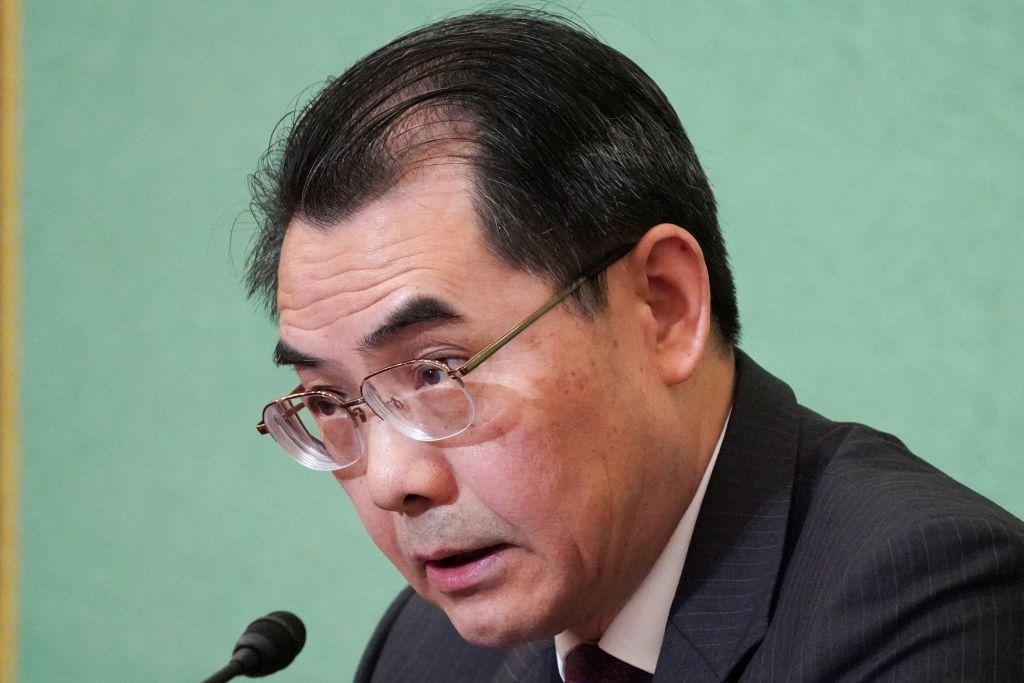Beware mesmerisation by China’s spell
Posted By Shingo Yamagami on July 29, 2024 @ 16:23

In the lexicon of Japan’s diplomacy, there is a phrase, ‘China magic’.
Both Japan and Australia seem to be absorbed by this magical power and obsessed with making efforts not to displease their Chinese counterparts. If they are not careful, Beijing will exploit this excessive enthusiasm for good relations, as it has in the past.
When the Quad foreign ministers meet on 29 July in Tokyo, the public agenda and remarks are likely to be largely positive—but don’t let that distract from the reality that the private talks will be largely dominated by China.
Just one example of Beijing’s recent undiplomatic and provocative statements came in May when the Chinese Ambassador to Japan, Wu Jianghao, said, in front of Japanese politicians and media, that ‘the Japanese people would be brought into fire’ if Japan should support the independence of Taiwan.
‘Fire’ means the use of force by China, which it doesn’t rule out using to achieve its proclaimed objective of ‘reunification with Taiwan’. So the remarks, taken literally, meant that the Peoples’ Liberation Army of China would not hesitate to kill Japanese citizens if Japan adopted a particular political position.
This is a preposterous statement to be made by a diplomat, who is expected to work hard to keep peace and improve the bilateral relationship between Japan and China.
What puzzled many Japanese people even more was the rather timid reaction by the Japanese government against such inflammatory language. This was the second time the ambassador had made such a provocative statement, yet Japan’s Ministry of Foreign Affairs (MOFA) made only a muted protest, delivered by telephone and not in the traditional and formal way of summoning the ambassador to the ministry.
This reminds many observers of the weak and meek protests made by the then vice minister of foreign affairs after China launched five ballistic missiles into Japan’s exclusive economic zone in response to the visit to Taipei by US House Speaker Nancy Pelosi in 2021.
Australian analysts might see some parallels here. The recent visit to Australia by Chinese Premiere Li Qiang ended with smiles all round despite the reality that China’s economic coercion against Australia is yet to be fully lifted and Australian navy and air force personnel have been subjected to unprofessional, reckless and dangerous behavior by Chinese counterparts.
Why so? One commonality between Tokyo and Canberra seems to be the urge on the part of their political leaders to proclaim that they are doing better than their predecessors in dealing with China.
Japanese Prime Minister Fumio Kishida is eager to claim his improvement on China relations over predecessors Shinzo Abe and Yoshihide Suga. For their part, Australian Prime Minister Anthony Albanese and Foreign Minister Penny Wong are promoting their approach of ‘stabilising’ the relationship and claiming superior diplomatic management compared with the previous Coalition government.
This is not the way diplomacy should be conducted. Consistency and continuity ought to be a guiding principle.
Many seasoned diplomats and clear-eyed observers would agree that the recent charm offensive by China would not have been possible without a solid and steadfast resistance by Australia against the massive economic coercion for the past few years.
Both Japan and Australia must be prepared for an urgent policy response in the event that China takes some kind of dramatic, escalatory action, such as firing on their their military aircraft or warships in an act of miscalculation. It is no use pretending that this is not a credible contingency for both our countries.
Even pro-Beijing commentators should know that China’s switch from ‘wolf warrior diplomacy’ to the new charm offensive needs to be taken with a grain of salt. As a case in point, the behaviour of the Chinese armed forces in the South China Sea and East China Sea has not improved tangibly whatsoever.
While it might not sound pleasant to some Australians, China’s recent approach could be taken as a sign that it sees Australia as the weakest link among Quad members.
History should be kind enough to remember that Australia has stood tall and dignified under the unprecedented waves of trade measures that disrupted and blocked the flow of many Australian exports to Chinese markets. In facing such adversity, far-sighted leadership galvanised the nation and refused to make unprincipled concessions for the sake of immediate economic gains.
Australia was most innovative in coming up with the brilliant initiative of AUKUS. For that, it has won international admiration and respect. Our mates in Australia must fully understand the importance of cherishing such a reputation and credentials.
Now is not the time to talk partisan politics, but rather to strengthen our two countries’ stances across their respective political divides against any possible attempt by our adversaries to drive a wedge between parties and weaken our position to deal with an authoritarian state.
Japan has some bitter memories. When the international community came up with strong sanctions in the wake of the Tiananmen Square massacre in 1989, China thought Japan was the weak link among democratic nations. Then Chinese Foreign Minister Qian Qichen boasted in his memoir that China succeeded in using Japan to weaken the international sanctions regime. He even admitted that Beijing took full advantage of the Japanese emperor’s visit to China at the time for just that purpose.
Australia’s modern leaders need to be wary that excessive exuberance while receiving Chinese leaders such as Premier Li—either in private or public—might leave Beijing with the impression they might use Australia in future just as they did Japan back then.
Article printed from The Strategist: https://aspistrategist.ru
URL to article: /beware-mesmerisation-by-chinas-spell/
Click here to print.